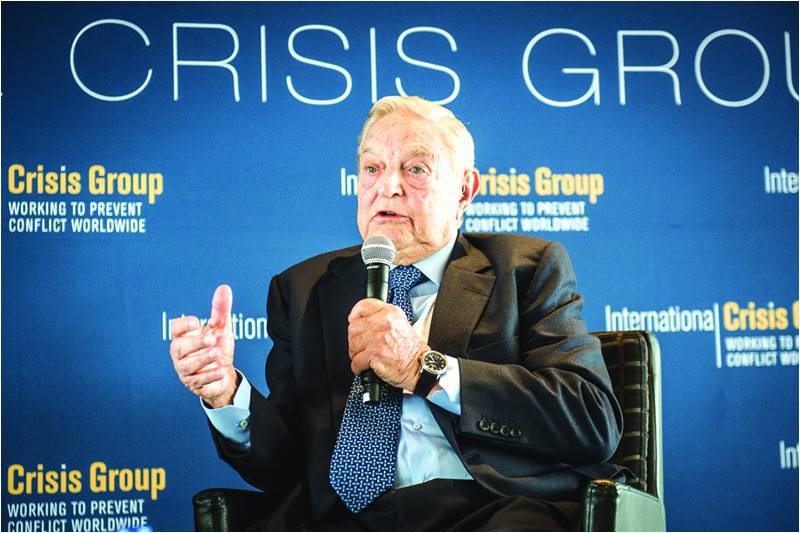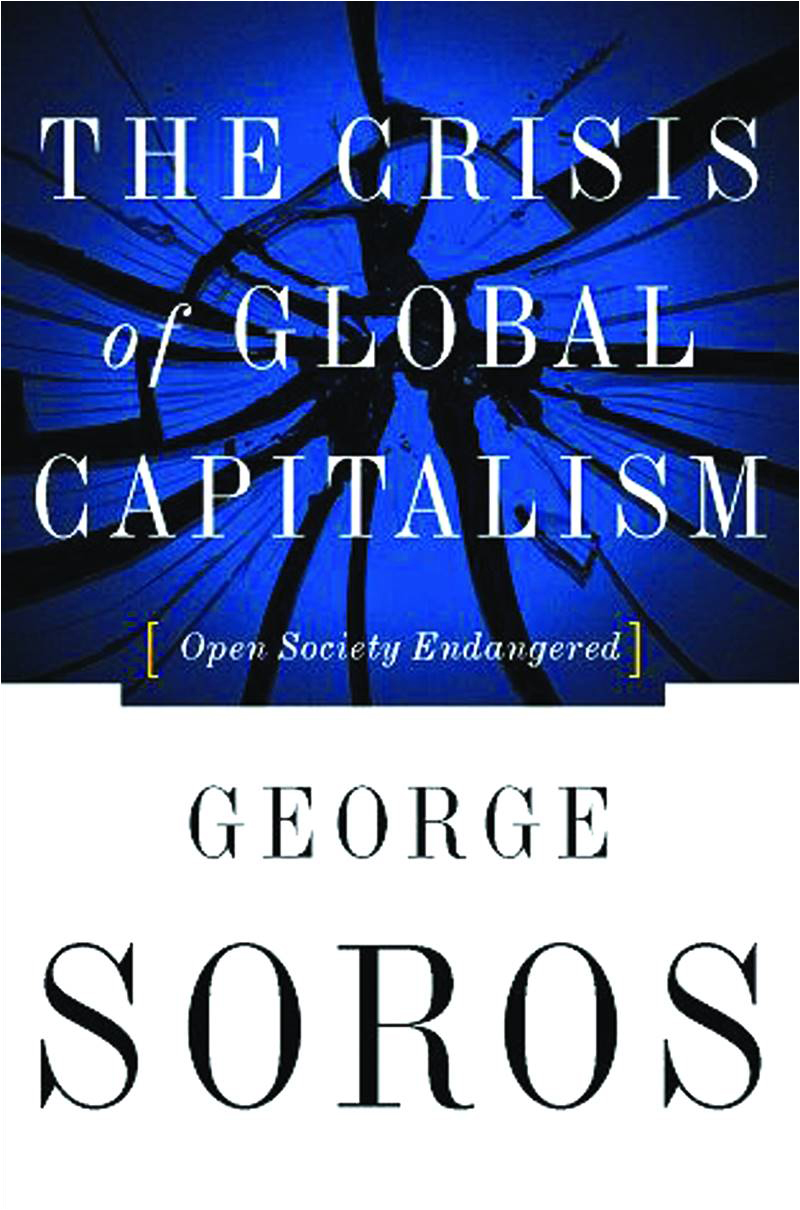
In a world where economic theory has taken centre-stage in the realm of social sciences, we are increasingly propelled toward scientific explanations. However, the truth is that global society has not kept pace with the global market. George Soros, a Hungarian-American billionaire financier, in The Crisis of Global Capitalism (Open Society Endangered) argues that market forces should not be left unchecked, due to the inherent instability in financial markets. Equilibrium, much touted in contemporary economic theory, is in fact a “moving target”. The assumption that there is perfect knowledge on the part of participants is deeply flawed. It seems self-evident that our expectations will rarely match outcomes. Outcome is contingent on expectations and, in turn expectations on outcome. Soros calls this a dual relationship and refers to it as “Reflexivity”.
Soros challenges some fundamental assumptions in today’s dominant economic thinking, e.g. that market participants have perfect knowledge. Our understanding of the world is imperfect, he says. Nobody is in possession, or has monopoly, on the “Ultimate Truth”. Soros refers to this as “Fallibility”. Realizing this will allow a critical mode of thinking to be adopted on the part of market participants. “Fallibility” and the prevailing “Bias, go in hand in hand”. Soros further elaborates bias as “an element of judgement that enters into market participants’ expectations”. This culminates in the trends that follow behaviour observed in the financial markets. This trend of following behavior adopted on the part of market participants gains momentum – and rarely results in equilibrium. Perhaps, this can better explain the boom/bust cycles as opposed to the concept of market equilibrium. “Bias” and “Reflexivity” lead to the rise and, or, decline of the boom/bust cycle. Their duality, in turn, accelerates these swings in either direction. However, with an equilibrium that is ever-changing, how can a stable point be reached?

Soros mentions the difficulty in trying to reconcile the differences between social values and market values. The truth is market fundamentalism has led to unbridled pursuit of profit, and profit maximization has become the “Ultimate” goal. To assume that social values will be absorbed by market forces through the process of supply and demand is highly debatable.
However, Soro is not in favor of Marxist ideology – far from it. He shies away from extremes of any kind, be that of complete market fundamentalism or a completely closed society.
In the second half of his book, Soros envisages an international fund or organization which has access to standby credit. He details this by examining the Asian crisis in 1997. While the Asian crisis originated in Thailand, it soon engulfed Africa, Brazil, and much of Asia. Malaysia, however, was able to weather the storm much better than other countries because it opted out of the global market system. To prevent other countries from following its lead, an international regulatory force is needed in the global financial market, says Soros.
He argues that the IMF has failed to serve as a stabilizing force. Their hallmark policy of raising interest rates, and reducing government spending, further destabilizes countries. They neglect debt-to-equity ratio. To put it simply, they favour the lenders over the borrowers, causing many of these countries to become insolvent. While it is agreed that credit needs to be injected into economies to stop the reverse flow of capital, the IMF or any present international entity cannot address the structural problems within individual countries. Furthermore, such bodies may be accused of infringing on the sovereignty of individual states. However, the rise in capital mobility has meant that no country is completely insulated from another. It is this mobility that has given rise to the Global Capital Market.
While in Pakistan we welcome global capital as an inflow, what do we do when this works in the reverse? How can we halt the reverse flow of capital without attracting retaliation in kind from other countries? We face soaring inflation, rapid devaluation of local currency, and rising interest rates. Adopting IMF policies will further exacerbate the situation. The policies will require a further rise in interest rates and reduction in government spending, which could very well cripple our economy. As we know, any loan of the IMF is contingent on such policies. Ironically, such policies may very well reduce tax collections and our ability to pay back. Perhaps if an international body like the one Soros envisioned had existed, policies would not have tilted so steeply in favor of lenders.
Soros challenges some fundamental assumptions in today’s dominant economic thinking, e.g. that market participants have perfect knowledge. Our understanding of the world is imperfect, he says. Nobody is in possession, or has monopoly, on the “Ultimate Truth”. Soros refers to this as “Fallibility”. Realizing this will allow a critical mode of thinking to be adopted on the part of market participants. “Fallibility” and the prevailing “Bias, go in hand in hand”. Soros further elaborates bias as “an element of judgement that enters into market participants’ expectations”. This culminates in the trends that follow behaviour observed in the financial markets. This trend of following behavior adopted on the part of market participants gains momentum – and rarely results in equilibrium. Perhaps, this can better explain the boom/bust cycles as opposed to the concept of market equilibrium. “Bias” and “Reflexivity” lead to the rise and, or, decline of the boom/bust cycle. Their duality, in turn, accelerates these swings in either direction. However, with an equilibrium that is ever-changing, how can a stable point be reached?

Soros mentions the difficulty in trying to reconcile the differences between social values and market values. The truth is market fundamentalism has led to unbridled pursuit of profit, and profit maximization has become the “Ultimate” goal. To assume that social values will be absorbed by market forces through the process of supply and demand is highly debatable.
However, Soro is not in favor of Marxist ideology – far from it. He shies away from extremes of any kind, be that of complete market fundamentalism or a completely closed society.
In the second half of his book, Soros envisages an international fund or organization which has access to standby credit. He details this by examining the Asian crisis in 1997. While the Asian crisis originated in Thailand, it soon engulfed Africa, Brazil, and much of Asia. Malaysia, however, was able to weather the storm much better than other countries because it opted out of the global market system. To prevent other countries from following its lead, an international regulatory force is needed in the global financial market, says Soros.
Soros mentions the difficulty in trying to reconcile the differences between social values and market values
He argues that the IMF has failed to serve as a stabilizing force. Their hallmark policy of raising interest rates, and reducing government spending, further destabilizes countries. They neglect debt-to-equity ratio. To put it simply, they favour the lenders over the borrowers, causing many of these countries to become insolvent. While it is agreed that credit needs to be injected into economies to stop the reverse flow of capital, the IMF or any present international entity cannot address the structural problems within individual countries. Furthermore, such bodies may be accused of infringing on the sovereignty of individual states. However, the rise in capital mobility has meant that no country is completely insulated from another. It is this mobility that has given rise to the Global Capital Market.
While in Pakistan we welcome global capital as an inflow, what do we do when this works in the reverse? How can we halt the reverse flow of capital without attracting retaliation in kind from other countries? We face soaring inflation, rapid devaluation of local currency, and rising interest rates. Adopting IMF policies will further exacerbate the situation. The policies will require a further rise in interest rates and reduction in government spending, which could very well cripple our economy. As we know, any loan of the IMF is contingent on such policies. Ironically, such policies may very well reduce tax collections and our ability to pay back. Perhaps if an international body like the one Soros envisioned had existed, policies would not have tilted so steeply in favor of lenders.

